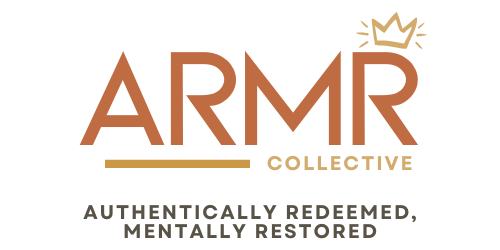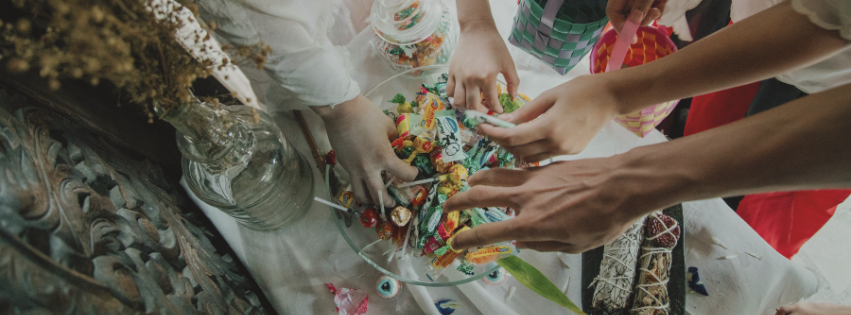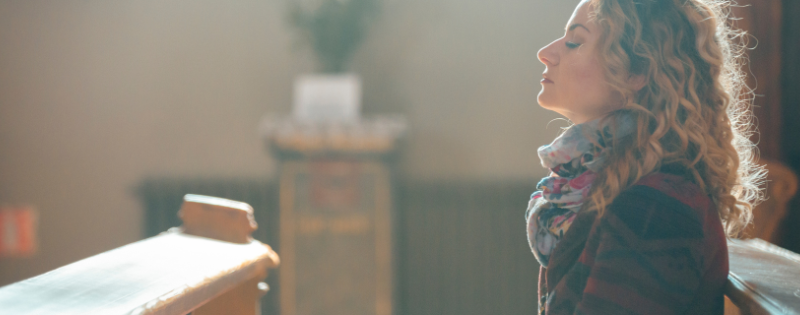My kids will be trick-or-treating this year. No skeletons on the porch, no scary movie marathons (they’re too little anyway)—just costumes and candy. And honestly? I’m still not 100% sure how I feel about it. I keep seeing post after post by Christian creators condemning Halloween, even the “harmless” parts of it like dressing up and trick-or-treating. They speak about the dark origins of Halloween and how participating in any of it is “inviting evil”. Some claim that even unknowingly, we’re exposing our families to demonic activity. That witches cast spells over candy. That the “veil is thin” in October.
I know my family is covered in the blood of Jesus, but the warnings still echo. Am I inviting demonic presences into my home by letting my toddler dress up as a kitty cat? I don’t think so, but I honestly don’t know—and I’m wondering if that’s okay.
Halloween Tension: The Two Sides
The “Avoid Halloween” Perspective
Let’s start with what we know: Halloween does have pagan origins. Halloween is rooted in the ancient Celtic festival of Samhain, when people believed the boundary between the living and the dead was blurred. Over centuries, it merged with Christian traditions (All Saints’ Day) and eventually became the secular, commercialized holiday we know today—focused more on costumes and candy than any spiritual practice.
Many Christians stick by the “avoid Halloween” perspective, based on 1 Thessalonians 5:22 (“Abstain from every form of evil.”) and Ephesians 5:11 (“Take no part in the unfruitful works of darkness, but instead expose them.”) Given Halloween’s occult roots, these verses provide a clear biblical basis for avoiding the holiday entirely. At the heart of this “side”, there’s a genuine desire to honor God and protect children.
The “It’s Just Fun” Perspective
On the other hand, we have the “it’s just fun” perspective. Culturally speaking, most people might not be purposely practicing paganism when carving pumpkins or going trick-or-treating. They see Halloween as a fun, secular cultural tradition. They may feel they have freedom in Christ to engage in the culture of Halloween. Colossians 2:16-17 says, “Therefore let no one pass judgment on you in questions of food and drink or with regard to a festival or a new moon or a Sabbath. These are a shadow of the things to come, but the substance belongs to Christ.” This verse reinforces the idea of trusting in Christ’s protection and not living in fear—making Halloween activities harmless fun.
I completely understand each of these sides. They both make sense to me, which is why I’ve had such a hard time when it comes to Halloween. Both perspectives come from genuine faith and sincere hearts. It makes me wonder if the middle of these two sides is okay.
The “Thin Veil” & Cursed Candy Concern
Like I mentioned, my Instagram feed has been flooded with Christian creators and former witches speaking about Halloween. They say that the veil is thin during the month of October and how important October is in the occult world. Some have even said that people will cast spells over Halloween candy, making you engage in a ritual whether you choose to or not just by trick-or-treating. They say that participating in any aspect of Halloween “enables” dark magic even unknowingly.
This really scared me—hearing testimonies from real people who have been involved with the occult. I do believe these testimonies are genuine. I don’t doubt that these individuals were involved in real occult practices, cast spells and engaged in spiritual warfare from the enemy’s side. I don’t doubt that their experiences were real and dark or that their warnings come from a place of genuine concern.
A Biblical Lens
But we need to view these testimonies from a Biblical lens. Experience does not equal biblical authority. Just because someone was involved in witchcraft doesn’t mean their theology is automatically sound now that they’re Christians.
That said, if someone is genuinely tempted or triggered by Halloween because of their past, they absolutely should abstain. If you’re a former witch and participating in Halloween stirs up old spiritual strongholds, memories, or temptations? Don’t do it. That’s wisdom, not fear. Romans 14:23 says, “Whatever is not from faith is sin”—if you can’t participate in good conscience, then for you, it’s sin. And that’s okay.
My concern isn’t with people who feel convicted to avoid Halloween. My concern is with the teaching that claims all Christians are vulnerable to cursed candy and thin veils—as if God’s protection is that fragile.
So, here’s what I wanted to know: What does the Bible actually say? Does Scripture support the “thin veil” teaching? Can cursed candy really harm my kids? Is trick-or-treating actually “enabling” dark magic?
Let’s dig into what God’s Word says—not what fear says.
The Biblical Answer: Is Halloween Really Demonic?
So let’s just address it directly: Does the Bible say Halloween is demonic? Is trick-or-treating inherently bad? Can witches’ spells override God’s protection?
I needed to know the actual answer, not just opinions or fear-based teachings. So I went to Scripture.
What the Bible DOESN’T Say
The Bible doesn’t directly address Halloween, trick-or-treating, or secular holidays with pagan origins. The Bible was written long before Halloween as we know it existed, so expecting a direct command about it is like expecting the Bible to tell us whether Christians can watch Netflix.
The absence of these verses is important. It means we need to apply biblical principles, not find a proof text.
What the Bible DOES Say About Spiritual Authority
The “Thin Veil” Isn’t Biblical
So what about the “thin veil” and potentially cursed candy?
As for the thin veil concept, it’s not found anywhere in Scripture. This is pagan/occult cosmology, not Christian theology. The spiritual realm doesn’t operate on a seasonal schedule. Demons don’t get “extra power” in October. Sure, those participating in occult practices may be more active this time of year, but it doesn’t mean they have any more power than usual.
Jesus Has ALL Authority
The Bible tells us in Matthew 28:18 that Jesus has ALL authority. Not “most authority except during Samhain”, not “authority unless a witch curses some candy”. ALL authority. Always.
In 1 John 4:4, it says, “You are from God and have overcome them, for he who is in you is greater than he who is in the world.” The Holy Spirit in us is greater than any demonic force, and this doesn’t have an expiration date or change because of a “thin veil” exception. We have already overcome—past tense.
What About Cursed Candy?
But what about the claim about people placing curses on candy? Let’s look at what Jesus says about external things having spiritual power. In Mark 7:18-19, Jesus says, “…do you not see that whatever goes into a person from outside cannot defile him, since it enters not his heart but his stomach, and is expelled? (Thus he declared all foods clean).”
Jesus’s point is that external things don’t have inherent spiritual power to defile us. A Snickers bar doesn’t become a portal for demons because someone prayed over it. If it did, we’d need to fear every meal at a restaurant (what if the cook practices witchcraft?), every gift from a non-Christian friend, every piece of mail. This logic doesn’t lead to biblical wisdom—it leads to paralyzing fear.
Spiritual Warfare Is Real—But So Is God’s Sovereignty
But this doesn’t mean we should ignore spiritual warfare. Spiritual warfare is very real, but we need to remember: it operates under God’s sovereignty, not Satan’s calendar.
So what actually counts as “participating with demons”? The Bible is clear: actively worshiping demons, engaging in occult practices like divination or spell-casting, invoking spirits—yes, that’s demonic participation (1 Corinthians 10:20-21). But trick-or-treating while trusting in Jesus? There’s no biblical basis for calling that “participating with demons.”
A child collecting candy isn’t worshiping demons—just like the Corinthian Christians weren’t worshiping idols when they ate meat from the marketplace (1 Corinthians 8:4-13).
What matters is our heart posture, setting age-appropriate boundaries for our kids, wearing our spiritual armor, and our discernment. What doesn’t matter is whether witches tried to curse candy, the “thin veil”, or if participating in Halloween “enables” magic. None of it matters because Jesus’s authority trumps all.
So if spiritual warfare is real but God’s sovereignty is greater, what’s the problem with teaching all Christians to avoid Halloween?
The Danger of Fear-Based Teaching
The danger in teaching all Christians to avoid Halloween altogether is this: it elevates Satan’s power. It creates fear-based Christianity where we’re constantly looking over our shoulders, wondering if we accidentally let demons in. And it misses the whole point of the gospel—Jesus has already won.
All this to say, we should, of course, respect the testimonies of those who’ve experienced or participated in the occult this time of year. We should not minimize what they’ve seen or experienced—spiritual warfare is 100% real. But we need to put everything in its rightful place. The “veil is thin” idea isn’t biblically sound. Curses won’t override Jesus’s blood, and trick-or-treating won’t enable dark magic.
The Pagan Origins Argument
“But what about Christmas and Easter? They have pagan roots too!”
You’re right—they do. Christmas was influenced by winter solstice celebrations, Easter by spring fertility festivals. So why do most Christians celebrate those but avoid Halloween?
It depends on what you’re celebrating.
At Christmas, we’re celebrating Jesus’s birth. At Easter, His resurrection. We’ve taken holidays with pagan roots and made them about worship. Halloween, on the other hand, just became commercialized—most families aren’t celebrating anything spiritual at all. It’s costumes and candy.
The question isn’t “does it have pagan origins?” The question is “what am I celebrating now?”
This is exactly what Paul addressed in 1 Corinthians 8 with meat sacrificed to idols. The meat wasn’t “demonic” just because it had pagan origins—what mattered was the believer’s heart posture (1 Corinthians 8:4).
If you’re trick-or-treating and celebrating darkness or Satan—that’s problematic. If you’re trick-or-treating, and it’s just a fun fall tradition with neighbors—that’s not worshipping anything. A pumpkin is just a pumpkin. Candy is just candy.
What matters is your heart, not the historical roots.
The Romans 14 Framework: Bringing It Together
The bottom line is: Halloween is a Romans 14 issue. Let’s take a look at the five principles outlined in Romans 14.
Be fully convinced in your own mind (v. 5)
Meaning we’re responsible for our own discernment. We can decide for ourselves what’s best for us, and either view is fine. The Holy Spirit came to bestow spiritual gifts upon us, one of them being discernment. We can follow the nudge of the Holy Spirit in making this decision.
Do it unto the Lord (v. 6-8)
This means our heart posture is what matters most. If our intent with Halloween is to celebrate the occult and glorify demonic activity, that’s one thing. But if the intent is to let our kids dress up and have a fun time collecting candy while trusting in Christ’s protection, Halloween can be a harmless activity.
Don’t judge each other (v. 3, 10, 13)
Whatever choice we make, both can be right and honor God. We don’t need to look down at others for the choices they discern as best for their families.
Don’t cause others to stumble (v. 13-21)
But their discomfort with your choice isn’t the same as stumbling. Stumbling means leading someone into sin against their conscience, not just making them uncomfortable with your decision.
For example, if participating in Halloween tempts someone into wanting to engage in the occult, they should trust their discernment and conviction and abstain. If engaging in Halloween activities could cause someone to stumble, we should definitely avoid it.
Protecting someone’s faith journey is always more important than our freedom.
Whatever is not from faith is sin (v. 23)
Here’s where it gets tricky for me: I feel guilty about trick-or-treating—but is that conviction from God, or anxiety from what other Christians are saying?
There’s a difference between conviction from the Holy Spirit and guilt from fear. Conviction from the Holy Spirit is a settled sense that God is personally leading you to abstain, and you have peace about that decision. Guilt from fear is anxiety about what others think and about “what if they’re right?”, but no actual peace about abstaining.
I’ve prayed about Halloween. I don’t feel the Holy Spirit telling me not to participate. What I feel is anxiety from other people’s warnings. And that’s not the same thing.
So for me, Romans 14:23 means: Can I trick-or-treat while trusting God and seeking to honor Him? Yes. Then I’m acting from faith, not fear. And that’s what matters.
What My Family Is Doing
My toddlers will be dressing up as a kitty cat and a puppy dog and trick-or-treating this year. We see it as a fun way to connect with our neighbors and let our kids be kids. BUT we won’t be decorating our house with skeletons and other scary elements, and we’ll stick to lighthearted Halloween movies—no content that glorifies witchcraft or the occult.
My kids are too young to fully understand now, but when they get older, my husband and I will be speaking to them about light versus dark. We follow Jesus, the light. Dressing up and handing out candy isn’t celebrating evil. We’ll make sure to explain discernment and how not everything everyone does is something we do. We make choices based on honoring God. And we don’t have to be afraid. Jesus is more powerful than anything scary. And if they tell us about some friends who don’t celebrate Halloween, we won’t make fun or pressure them.
I’m not claiming that what we’re choosing to do is right for every family. And what feels right for us now might not always be what’s right for us in the future.
I’m still a bit uncertain, but that’s okay. Not every decision needs certainty—some require ongoing discernment, humility, and the willingness to adjust.
Questions to Ask Yourself
If you’re trying to figure out where you land, here are some questions that might help.
About conviction:
- Have I prayed about this and asked God for wisdom?
- Do I feel genuine peace about my decision before God?
- Am I acting from faith or from fear of what others think?
About my kids (if applicable):
- What am I teaching them about discernment?
- Am I modeling faith or fear?
- Am I helping them think critically about culture?
About others:
- Am I judging those who choose differently?
- Would my participation genuinely cause someone to stumble into sin?
The key: Make your decision prayerfully, hold it humbly, and extend grace generously.
Faith Over Fear
The Freedom of the Gospel
There may not be a one-size-fits-all answer to whether or not we should celebrate Halloween. But we do know this for sure: God cares more about heart than Halloween decisions. The gospel doesn’t say that we have to get everything right or we lose God’s favor. It doesn’t tell us that we’ll be left unprotected if we make one wrong choice or that we have to navigate every cultural moment perfectly.
But it does tell us that Jesus’s sacrifice is enough. The Holy Spirit will guide us to truth, and God is big enough for our questions. There is grace for learning, growing, and uncertainties.
Welcome to the Messy Middle
If you’re like my family and you’re in the messy middle, welcome. There’s room here. We don’t have to have it all figured out or choose a side to prove we’re spiritual. And we don’t have to defend our choices to everyone who disagrees. We don’t have to live in fear of making the wrong call.
Instead, we get to seek God’s wisdom for OUR own families and trust the Holy Spirit’s leading in our lives. We can extend grace to those who land in different places than us and rest in God’s protection and goodness.
The Real Victory
Maybe the real spiritual victory isn’t about trick-or-treating versus staying home. Maybe it’s about choosing faith over fear. Extending grace over judgment. Seeking God over seeking others’ approval. And trusting God’s love covers our imperfect discernment.
So whether you’re trick-or-treating or handing out candy or leaving porch lights off—we can give each other grace.
This is what I know for certain: my family is covered by the blood of Jesus. So is yours. And that’s bigger than Halloween.
How are you navigating Halloween this year? I’d love to hear your thoughts—whether you agree, disagree, or (like me) you’re still figuring it out. Let’s create space for honest conversation without judgment.




Jesus was never passive about evil. Was never gracious about instruction to keep away from evil. 1 Thessalonians 5:22 says abstain from every form of evil and keep away from it. Professing Christ and still participating in Halloween is denial of what He declares as truth and a love for your own way over His way.
I respect that this is your conviction, and if participating in Halloween feels like evil to you, you should absolutely abstain (Romans 14:23).
However, I want to gently address 1 Thessalonians 5:22. In context, Paul is instructing believers to test prophecies and reject what is actually evil (verses 19-22). The Greek “eidos” means “form/kind” of evil, not “anything with pagan origins” or “anything someone might perceive as questionable.”
Otherwise, we’d need to abstain from Christmas trees, wedding rings, and days of the week—all with pagan roots.
The question is: “Am I participating in actual evil/sin?” Engaging in witchcraft or occult practices? Absolutely evil—abstain. Trick-or-treating with Jesus-focused boundaries? Not evil, even if you believe it is.
For those now second-guessing: Your faith isn’t in denial if you’ve prayerfully discerned this. This is the kind of fear-based teaching this post addresses. We can have different convictions without questioning each other’s salvation.
Do you know what syncretism is? You will be held accountable for doing this and trying to teach others that this is okay.
Remember, this spiritual battle isn’t about humans trying to snatch each others salvation from them (as if that’s possible).